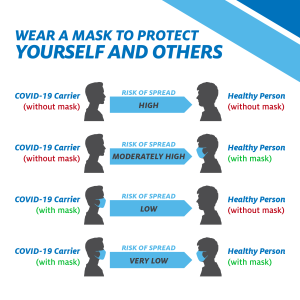Prevent Transmission of COVID-19
Two compelling case reports show that face masks can effectively prevent the transmission of COVID-19. The first involved a man who was traveling from China to Toronto when he fell ill. During the flight, he wore a mask. In a separate study, hair stylists in Missouri had contact with more than 140 clients who also were sick with COVID-19. They all wore a face mask, and none of them became infected with the disease.
The use of face masks may be effective in reducing the amount of virus-laden droplets. These small droplets can travel further. However, people can still contract COVID-19 through their eyes. Therefore, it is important to wear a face mask and take other precautions. The CDC reversed its earlier guidance on the use of face masks to Prevent covid transmission.
The effectiveness of face masks for preventing the transmission of COVID-19 is controversial. In a recent study, health officials in California made it mandatory for people to wear a face mask. Although the masks do not completely block respiratory droplets, they can help reduce the risk of infection. The World Health Organization and the Centers for Disease Control and Prevention both recommend the use of cloth masks. Despite the controversy surrounding face masks, the World Health Organization and the Centers for Disease Prevention recommend the use of masks for the general public.

Face Masks to Prevent Transmission of COVID-19
The CDC recommends the use of face masks for COVID-19 in health care settings. It is important to use a face mask when you are in an area prone to COVID-19 outbreak. If you have had the virus and don’t have the vaccine, wearing a face mask can help prevent the transmission of the virus. If you have any of the other conditions that make you vulnerable to severe infections by COVID-19, you should also wear a face mask.
While face masks are effective for preventing transmission of COVID-19, they are not a perfect solution. The evidence presented in these studies was too small to make any definitive conclusions. Regardless of the type of face masks, health care workers should avoid crowds and keep their rooms ventilated. While these strategies can help prevent the spread of COVID-19, the effectiveness of face masks to prevent the transmission of this virus is still unclear.
The CDC’s advice to wear face masks is based on the sensitivity of the virus to the face. The CDC recommends wearing a face mask when performing light work and aren’t a viable alternative for preventing the transmission of COVID-19. In these cases, the mask’s filtration efficiency isn’t very high, and it’s important to make sure that the face mask does not obstruct the respiratory system.